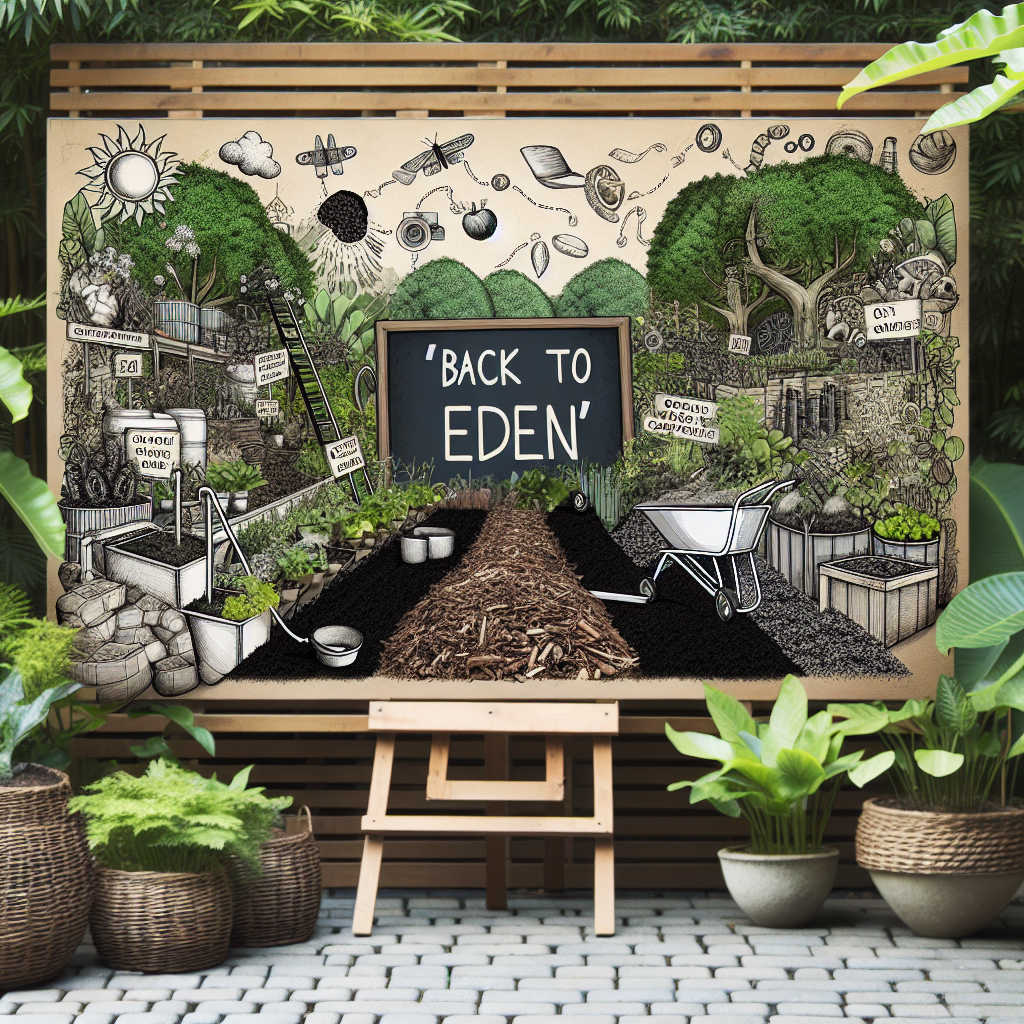Achieving Sustainable Gardening Success with Back to Eden Method
December 26, 2024 at 11:50:46 AM
Explore the principles, benefits, and practical applications of Back to Eden gardening, a sustainable method that mimics natural ecosystems to create thriving gardens. Learn from a successful case study, understand key principles, avoid common mistakes, and embrace the call to action for a more informed gardening experience.

1. Overview of Back to Eden Gardening
Back to Eden gardening is a method that focuses on creating a natural and sustainable garden by mimicking woodland systems. This approach involves using a thick layer of organic materials, such as wood chips, to create a natural mulch that nourishes the soil and helps to retain moisture. The concept was popularized by Paul Gautschi and is based on the idea of working in harmony with nature to promote healthy plant growth and reduce the need for chemical inputs.
2. Benefits of Back to Eden Gardening
- "Back to Eden gardening not only contributes to healthy soil but also helps conserve water and suppress weeds naturally." - Organic Gardening Expert, Emily Murphy.
- Enhances soil fertility and promotes beneficial soil organisms.
- Requires minimal weeding and watering, leading to less maintenance.
- Creates a self-sustaining ecosystem that supports plant growth.
3. Key Principles of Back to Eden Gardening
- Importance of using organic materials like wood chips for mulch.
- Mimicking natural forest environments to foster plant growth.
- Avoiding tilling or disturbing the soil to maintain soil structure and preserve soil health.
- Promoting biodiversity and natural nutrient cycling in the garden.
4. Case Study: Successful Back to Eden Garden Transformation
Mr. and Mrs. Thompson transformed their conventional garden into a thriving back to Eden garden. By applying a thick layer of wood chips, they improved soil health, reduced water usage by 50%, and saw a significant increase in plant productivity within a few seasons.
5. Tools and Materials for Back to Eden Gardening
- Wood chips or other organic mulch materials.
- Gardening fork for spreading and aerating the mulch.
- Compost for added nutrients.
- Newspaper or cardboard for weed suppression.
6. Common Mistakes to Avoid in Back to Eden Gardening
- Using chemically treated mulch materials.
- Applying mulch too thinly, which can lead to weed growth and inadequate soil coverage.
- Neglecting to replenish mulch regularly to maintain soil health.
- Over tilling or disturbing the soil, disrupting the natural ecosystem.
7. Conclusion
Back to Eden gardening offers a natural and sustainable approach to gardening that benefits both plants and the environment. By following key principles and utilizing organic materials, gardeners can create healthy, low-maintenance gardens that thrive in harmony with nature.
8. Call to Action
For those interested in exploring back to Eden gardening further, consider researching specific plant species that thrive in this environment or joining online forums to exchange ideas with like-minded individuals. Engaging in discussions with experts in the field can provide valuable insights and enhance your gardening experience.
Topics




